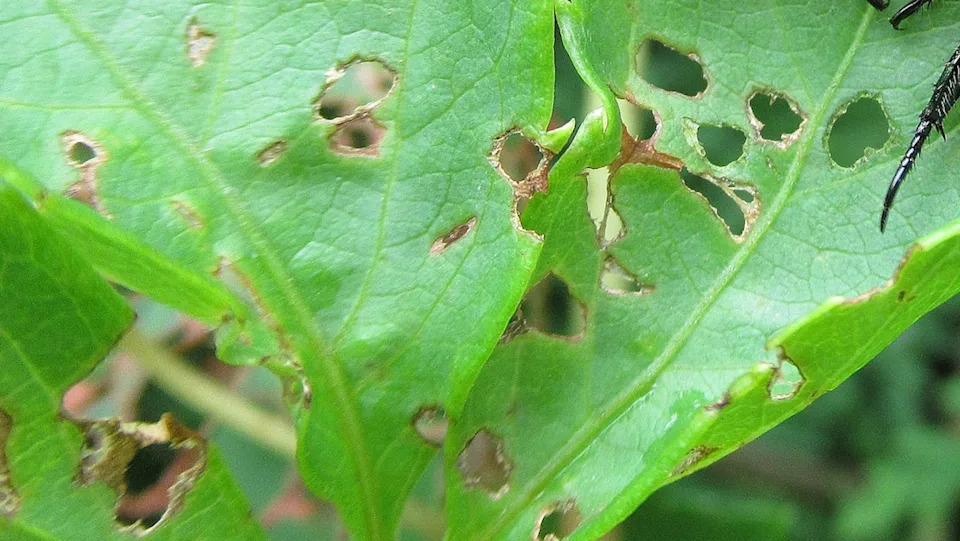Warm weather is bringing some hungry beetles out of hiding.
What’s happening?
Invasive Japanese beetles have an enormous appetite, and they’re out of control in Kansas.
The small, shimmering scarab beetles are native to Japan and considered highly invasive in the United States and Europe. Their eggs are laid in the soil, and larvae eat roots underground until temperatures rise. Once they emerge, the beetles voraciously consume leaves.
While some invasive species fixate on one plant, this hungry beetle doesn’t discriminate. They feed on “more than 300 different types of plants, such as Virginia creeper, linden, crabapple, roses, American elm, and willow, along with crops like corn and soybeans,” according to KSNT.
Why are the beetles concerning?
Despite their small size, these beetles have a devastating impact on agriculture. Roots are destroyed by their larvae, and leaves and fruit are eaten by the mature beetles — the entire crop is lost.
“When an insect is out for three months, they’re gonna eat everything they can,” Kansas State University professor Raymond Cloyd told KSNT.
Watch now: Giant snails invading New York City?
It’s not just Kansas’s crops at risk. Other states lose millions or billions in agricultural income.
Invasive species are one of the main drivers of extinction, along with habitat loss. Invasive species outcompete native ones for resources, alter habitats, and even introduce new diseases.
What’s being done to stop the beetles?
These beetles are extremely difficult to get rid of. Many traditional pheromone traps attract beetles, but they aren’t as successful in capturing or killing them. A college student at the University of Minnesota developed their own Japanese beetle trap, and it looks promising.
Without traps, residents use insecticides on their plants and soil to kill beetles and their grubs. For those who are hesitant to use pesticides on their plants, the beetles can be picked off by hand and dumped in warm, soapy water to kill them.
Conservationists are constantly developing new ways to combat invasive species, from releasing wasps to fight fruit flies to eating invasive crawfish.
|
Do you think your lawn has enough greenery in it? Click your choice to see results and speak your mind. |
Join our free newsletter for good news and useful tips, and don’t miss this cool list of easy ways to help yourself while helping the planet.
Yahoo News – Latest News & Headlines
Read the full article .


